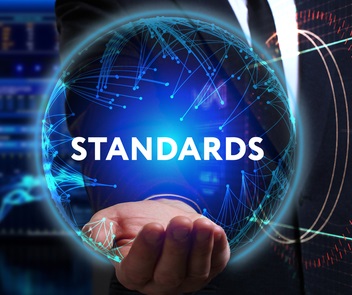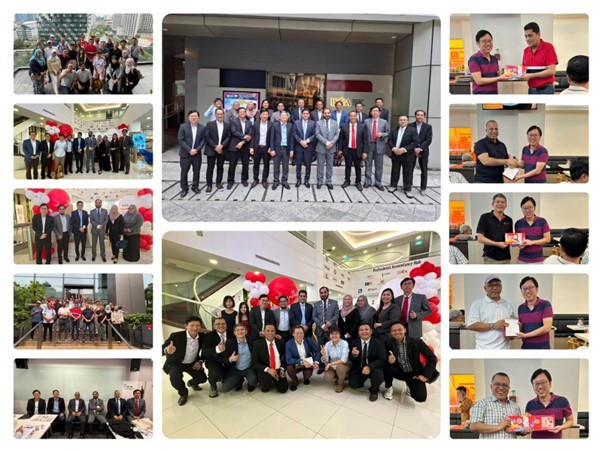Jurisdictions representing over half the global economy by gross domestic product (GDP) have announced steps to use the International Sustainability Standards Board’s (ISSB) Standards or fully align their sustainability disclosure standards with those of the ISSB.
A growing number of jurisdictions are progressing towards or considering measures to ensure global comparability in companies’ climate and other sustainability-related disclosures, relying on the global baseline established by the ISSB Standards.
Over 20 jurisdictions have decided to use or are taking steps to introduce ISSB Standards into their legal or regulatory frameworks. Together, these jurisdictions account for:
- Nearly 55% of global GDP
- More than 40% of global market capitalisation
- Over half of global greenhouse gas emissions
Many jurisdictions aim for full alignment with or adoption of the ISSB Standards. The European Union was the first, with the Corporate Sustainability Reporting Directive established in June 2022, mandating that the European Sustainability Reporting Standards incorporate ISSB Standards to the greatest extent possible. This decision paved the way for high alignment on climate and the recent interoperability guidance issued jointly by the IFRS Foundation and EFRAG. The latest is China, where the Ministry of Finance issued the Exposure Draft of Chinese Sustainability Disclosure Standards for Business Enterprises—Basic Standard and Explanation of the Drafting. The draft formulates unified China Sustainability Disclosure Standards based on ISSB Standards, adapting to China’s context and showcasing Chinese characteristics.
Together, the jurisdictions adopting or considering ISSB Standards account for approximately 75% of global market capitalisation, excluding the United States. In the USA, the Securities and Exchange Commission (SEC) recently issued a release regarding their climate-disclosure rule, acknowledging similarities with the ISSB Standards. However, the SEC noted that the Standards are not yet integrated into jurisdictional rules and thus did not recognise ISSB Standards as an alternative to the SEC’s climate disclosure rules at this time.
The global movement towards sustainability disclosure requirements reflects a significant response since IOSCO endorsed ISSB Standards in July 2023. IOSCO called on its members, who regulate companies in over 95% of the world’s financial markets, to consider adopting, applying, or being informed by ISSB Standards within their jurisdictional contexts, promoting consistent and comparable climate-related and other sustainability-related disclosures for investors.
Supporting Jurisdictions
The IFRS Foundation has released a guide to assist jurisdictions in designing and planning their journey towards adopting or utilising ISSB Standards.
Inaugural Jurisdictional Guide
The publication of the Inaugural Jurisdictional Guide for the adoption or use of ISSB Standards was announced at the IOSCO Annual Meeting in Athens. This release coincides with growing momentum toward establishing a global baseline for sustainability disclosures in capital markets.
The Guide aims to demonstrate to market participants how jurisdictions are progressing toward delivering globally consistent and comparable sustainability-related information. It acknowledges the various ways in which jurisdictions may utilise the ISSB Standards, as outlined in the IOSCO endorsement decision. The Guide also details different jurisdictional approaches to adopting or using ISSB Standards, including full adoption, partial adoption, and permission to use.
Regulatory Implementation Programme
The IFRS Foundation has outlined its Regulatory Implementation Programme, which summarises the tools, educational materials, and capacity-building efforts the Foundation plans to provide in collaboration with its partners. This programme aims to support the increasing number of jurisdictions making policy decisions and designing and executing their roadmaps for adopting or using ISSB Standards.
The programme will serve as a framework for close collaboration between the IFRS Foundation and the Growth and Emerging Markets Committee of IOSCO, comprising over 120 regulators worldwide. These efforts will be further supported through partnerships with other international bodies, multilateral development banks, and private sector partners to enhance capacity building.
African Development Bank Partnership
An important step in capacity-building efforts was marked today: at its Annual Meeting in Nairobi, Kenya, the African Development Bank (AfDB) signed an agreement with the IFRS Foundation. This agreement aims to advance sustainability-related disclosure practices in Africa through capacity building and technical assistance. The agreement underscores the IFRS Foundation’s commitment to supporting the implementation of ISSB Standards.
Info obtained from https://www.ifrs.org/




